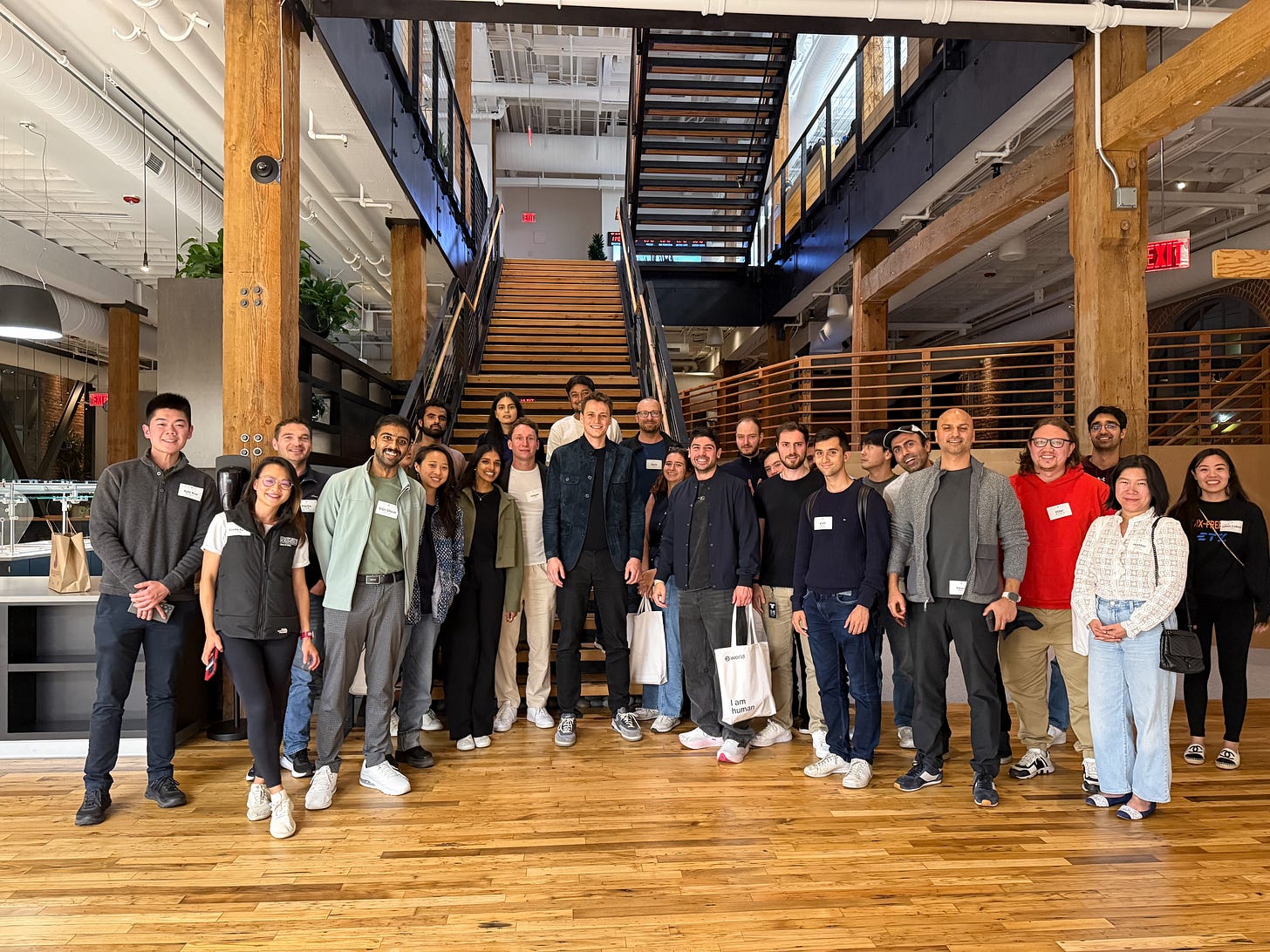Alex Blania, Founder @World and Merge Labs
9/12/7 @World
Last week we had a chance to host Alex Blania, founder of World for Icons. Alex studied physics at caltech and then co-founded World and Merge Labs with Sam Altman.
Here are a few insights from the conversation:
-World rests on three core assumptions: most future internet traffic will be driven by AI, the value of the network increases exponentially as more people join, and a token can effectively bootstrap and sustain that network from day one;
- The revenue thesis follows from those assumptions: the cost per verified human will be significant, creating strong demand for services like social networks, while belief in the token itself becomes a powerful driver of value and participation;
- From the outset the idea sounded outright crazy to nearly everyone, which Alex argues is exactly what you should expect when you are working on something truly transformative;
- The iris scan is the single piece of biometric data that remains uniquely unspoofable, making it the critical element that ensures the system cannot be tricked or duplicated while allowing individuals to remain completely anonymous in the network;
- If World succeeds at scale, it has the potential to become the dominant global human coordination layer of the internet, a foundational infrastructure for how humans and AI interact online;
- Alex is the co-founder of The Merge, the research labs that is aimed to advanced human brain via non-invasive brain-computer integration. He mentioned that one of the bottlenecks of Neuralink’s current methods is their invasive approach that destroys more neurons than it saves, which he sees as fundamentally unsustainable for long-term brain–computer integration;
- Alex illustrated how “ridiculous” ideas, when grounded in first-principle reasoning, can scale to something massive. Professors openly mocked both AGI and crypto after the bubble burst, but he spent weeks in deep isolation reasoning through why it could work, and that conviction ultimately produced World now serving nearly 40 million users;
- He believes that small, deliberate choices by people like us can redirect technological progress in outsized ways, so he completely shut down his personal life and dedicated every waking hour to the mission, convinced this is the most consequential moment to be building in reality;
- Getting rejected by YC120 became a pivotal turning point: a VC happened to notice an auto-liked Instagram post, Alex followed up, and that unexpected chain connected him to Sam Altman. He was even ready to fly to San Francisco just to tell YC they were wrong, showing how setbacks can fuel something far bigger;
- One of the most surprising lessons he learned from Sam Altman was the power of radical simplicity. He now asks himself whether an idea could be as simple as Sam suggests, realizing that every truly genius concept can and should be distilled into one crystal-clear sentence.

